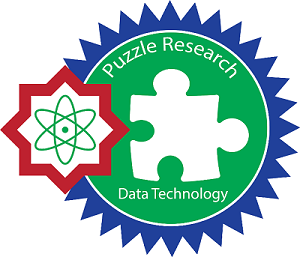ADDITIONAL MENU
Artificial General Intelligence (AGI) and Its Implications For Contract Law
Abstract
The development of artificial intelligence technology has presented AGI as an exciting future potential. In contract law, AGI can change the landscape of agreements and contract execution. The existence of AGI will raise various legal challenges and questions, such as whether AGI can be a legal party to a contract, whether AGI can execute contracts effectively, and how legal responsibility AGI is in contract execution. This study aims to analyze and identify the legal implications that may arise with the existence of AGI in the context of contract law. In this regard, the research will try to understand how AGI can influence existing principles of contract law. This study uses normative research methods by collecting and analyzing relevant legal sources, including legal literature, regulations, and court rulings related to contract law. This research also involves a comparative study of existing contract law with possible future situations with the existence of AGI. The results of this study show that the presence of AGI has the potential to change important aspects of contract law. Some of the implications identified include questions about AGI's legal status as a legal subject, AGI's legal liability in the performance of contracts, aspects of the validity and interpretation of contracts involving AGI, and legal protection for parties entering transactions with AGI. This research provides a crucial initial understanding in dealing with legal challenges that may arise due to the existence of AGI in the context of contract law
Keywords
Artificial General Intelligence; Implication; Contract Law
Full Text:
PDFReferences
B. Goertzel, “Artificial General Intelligence: Concept, State of the Art, and Future Prospects,” J. Artif. Gen. Intell., vol. 5, no. 1, pp. 1–48, 2014, doi: 10.2478/jagi-2014-0001.
S. J. Bayern, “Offer and acceptance in modern contract law: A needless concept,” Calif. Law Rev., vol. 103, no. 1, pp. 67–101, 2015, doi: 10.2139/ssrn.2222394.
J. Bughin, J. Seong, J. Manyika, M. Chui, and R. Joshi, “Notes From the Ai Frontier: Modeling the Impact of Ai on the World Economy,” in Notes from the AI frontier: Modeling the impact of AI on the world economy, no. September, McKinsey Global Institute, 2018, pp. 1–61.
H. Surden, “Artificial intelligence and Psychiatry: An overview,” Ga. State Univ. Law Rev., vol. 35, no. 04, p. 1305, 2019, doi: 10.1016/j.ajp.2022.103021.
R. Rodrigues, “Legal and human rights issues of AI: Gaps, challenges and vulnerabilities,” J. Responsible Technol., vol. 4, no. September, p. 100005, 2020, doi: 10.1016/j.jrt.2020.100005.
N. A. Perifanis and F. Kitsios, “Investigating the Influence of Artificial Intelligence on Business Value in the Digital Era of Strategy: A Literature Review,” Inf., vol. 14, no. 2, 2023, doi: 10.3390/info14020085.
E. Bird, J. Fox-Skelly, N. Jenner, R. Larbey, E. Weitkamp, and A. Winfield, The Ethics of Artificial Intelligence Issues and Initiatives : Study Panel for the Future of Science and Technology, no. March. Scientific Foresight Unit (STOA), 2020.
S. Haas, S. Wohlgemuth, I. Echizen, N. Sonehara, and G. Müller, “Aspects of privacy for electronic health records,” Int. J. Med. Inform., vol. 80, no. 2, 2011, doi: 10.1016/j.ijmedinf.2010.10.001.
T. A. Christiani, M. I. Qureshi, and J. I. Kosasih, “Artificial Intelligence (AI) In Copyright Law in Indonesia,” J. Posit. Sch. …, vol. 6, no. 3, pp. 418–423, 2022, [Online]. Available: https://journalppw.com/index.php/jpsp/article/view/1418%0Ahttps://journalppw.com/index.php/jpsp/article/download/1418/720.
M.-H. Sung and W. Umar, “A New Industry and Tax Base on Taxing Esports in Indonesia,” J. Media Huk., vol. 27, no. 2, 2020, doi: 10.18196/jmh.20200148.
A. Rustan, J. Hsieh, and W. Umar, “Maladministration on Mining Business Licenses : Case Study “ Mining Business License Production Operation PT . Aneka,” Varia Justicia, vol. 17, no. 3, pp. 246–257, 2021.
E. Latifah, “E-Contract dalam Perspektif Hukum Perdagangan Internasional,” Syiar Huk. J. Ilmu Huk., vol. 9, no. 3, pp. 232–247, 2007, [Online]. Available: https://ejournal.unisba.ac.id/index.php/syiar_hukum/article/view/480.
B. Goertzel, “Human-level artificial general intelligence and the possibility of a technological singularity. A reaction to Ray Kurzweil’s The Singularity Is Near, and McDermott’s critique of Kurzweil,” Artif. Intell., vol. 171, no. 18, pp. 1161–1173, 2007, doi: 10.1016/j.artint.2007.10.011.
Z. Wen and D. Tong, “Analysis of the Legal Subject Status of Artificial Intelligence,” Beijing Law Rev., vol. 14, no. 01, pp. 74–86, 2023, doi: 10.4236/blr.2023.141004.
J. Linarelli, “Advanced Artificial Intelligence and Contract,” Unif. Law Rev., no. Febuary, 2019, doi: 10.2139/ssrn.3341307.
Á. Juhász, “The Applicability of Artificial Intelligence in Contractual Relationships,” Acta Univ. Sapientiae Leg. Stud., vol. 9, no. 1, pp. 63–82, 2020, doi: 10.47745/ausleg.2020.9.1.04.
M. Oliver, “Contracting by Artificial Intelligence: Open Offers, Unilateral Mistakes, and Why Algorithms are Not Agents,” Aust. Natl. Univ. J. Law Technol., vol. 02, no. 01, pp. 45–87, 2021.
P. Giliker, “Contract Negotiations and the Common Law: A Move to Good Faith in Commercial Contracting?,” Liverp. Law Rev., vol. 43, no. 2, pp. 175–202, 2022, doi: 10.1007/s10991-022-09299-2.
H. Alessa, “The role of Artificial Intelligence in Online Dispute Resolution: A brief and critical overview,” Inf. Commun. Technol. Law, vol. 31, no. 3, pp. 319–342, 2022, doi: 10.1080/13600834.2022.2088060.
C. C. Goodman, “AI/Esq.: Impacts of Artificial Intelligence in Lawyer-Client Relationships,” Oklahoma Law Rev., vol. 72, no. 1, p. 149, 2019, [Online]. Available: https://heinonline.org/hol-cgi-bin/get_pdf.cgi?handle=hein.journals/oklrv72§ion=9.
N. Naik et al., “Legal and Ethical Consideration in Artificial Intelligence in Healthcare: Who Takes Responsibility?,” Front. Surg., vol. 9, 2022, doi: 10.3389/fsurg.2022.862322.
P. B. Hugenholtz and J. P. Quintais, “Copyright and Artificial Creation: Does EU Copyright Law Protect AI-Assisted Output?,” IIC Int. Rev. Intellect. Prop. Compet. Law, vol. 52, no. 9, pp. 1190–1216, 2021, doi: 10.1007/s40319-021-01115-0.
A. Kurniawijaya, A. Yudityastri, and A. P. C. Zuama, “Pendayagunaan Artificial Intelligence dalam Perancangan Kontrak Serta Dampaknya Bagi Sektor Hukum di Indonesia,” Khatulistiwa Law Rev., vol. 2, no. 1, pp. 260–279, 2021, doi: 10.24260/klr.v2i1.108.
H. Shevlin, K. Vold, M. Crosby, and M. Halina, “The limits of machine intelligence,” 2019. doi: 10.15252/embr.201949177.
S. Masrichah, “Ancaman dan Peluang Artificial Intelligence (AI),” Khatulistiwa J. Pendidik. dan Sos. Hum., vol. 3, no. 3, pp. 83–101, 2023, doi: https://doi.org/10.55606/khatulistiwa.v3i3. 1860.
N. Díaz-Rodríguez, J. Del Ser, M. Coeckelbergh, M. López de Prado, E. Herrera-Viedma, and F. Herrera, “Connecting the dots in trustworthy Artificial Intelligence: From AI principles, ethics, and key requirements to responsible AI systems and regulation,” Inf. Fusion, vol. 99, no. June, pp. 1–24, 2023, doi: 10.1016/j.inffus.2023.101896.
M. Scherer, “Artificial Intelligence and Legal Decision-Making: The Wide Open?,” Journal of International Arbitration, vol. 36, no. Issue 5. pp. 539–573, 2019, doi: 10.54648/joia2019028.
P. Adam, “Kedudukan Badan Hukum Sebagai Subjek Hukum dalam Hukum Ekonomi Syariah,” Syiar Huk. J. Ilmu Huk., vol. 17, no. 2, pp. 216–242, 2020, doi: 10.29313/shjih.v17i2.5923.
M. J. Schmidt-Kessen, H. Eenmaa, and M. Mitre, “Machines that make and keep promises - Lessons for contract automation from algorithmic trading on financial markets,” Comput. Law Secur. Rev., vol. 46, 2022, doi: 10.1016/j.clsr.2022.105717.
S. C. Mouritsen, “Contract interpretation with corpus linguistics,” Washingt. Law Rev., vol. 94, no. 3, pp. 1337–1418, 2019, doi: 10.2139/ssrn.3065239.
DOI: http://dx.doi.org/10.24014/ijaidm.v6i1.24704
Refbacks
- There are currently no refbacks.
Office and Secretariat:
Big Data Research Centre
Puzzle Research Data Technology (Predatech)
Laboratory Building 1st Floor of Faculty of Science and Technology
UIN Sultan Syarif Kasim Riau
Jl. HR. Soebrantas KM. 18.5 No. 155 Pekanbaru Riau – 28293
Website: http://predatech.uin-suska.ac.id/ijaidm
Email: ijaidm@uin-suska.ac.id
e-Journal: http://ejournal.uin-suska.ac.id/index.php/ijaidm
Phone: 085275359942
Journal Indexing:
Google Scholar | ROAD | PKP Index | BASE | ESJI | General Impact Factor | Garuda | Moraref | One Search | Cite Factor | Crossref | WorldCat | Neliti | SINTA | Dimensions | ICI Index Copernicus
IJAIDM Stats










